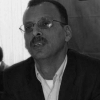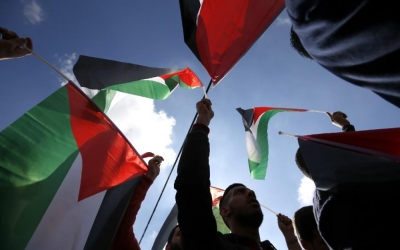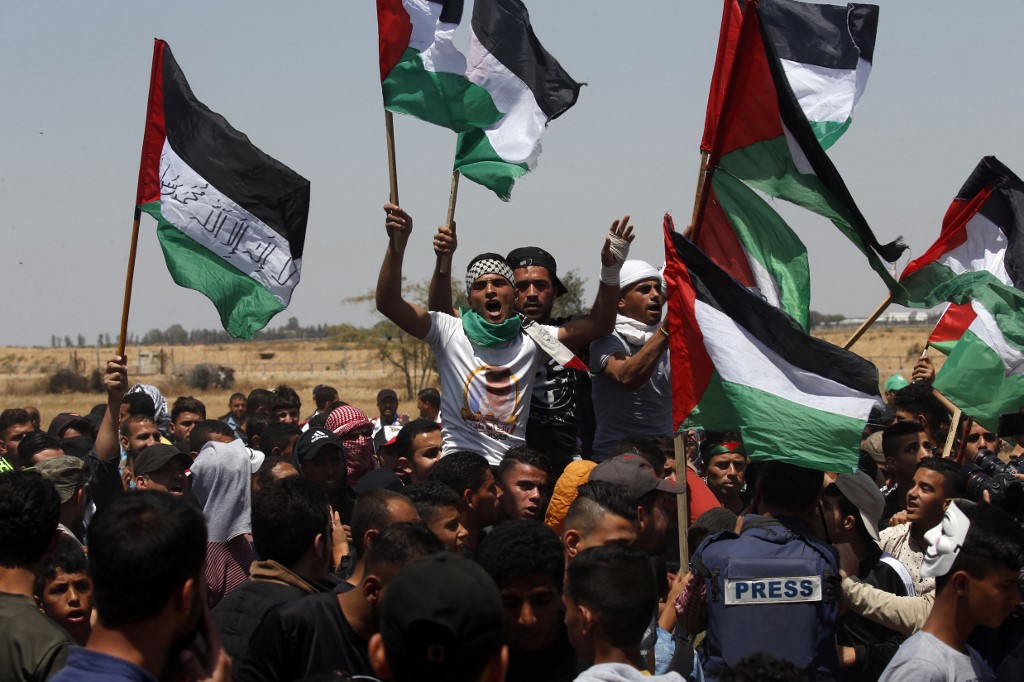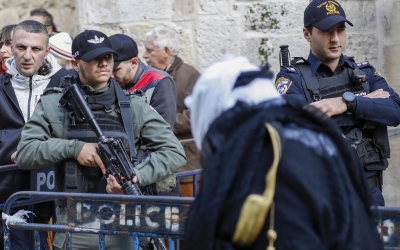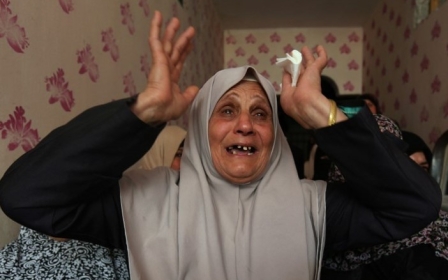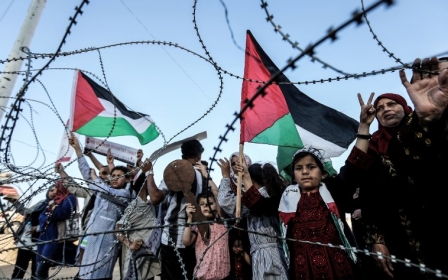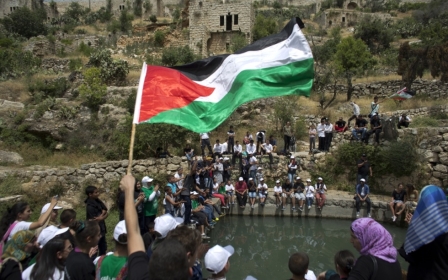The day my Israeli interrogators fell silent
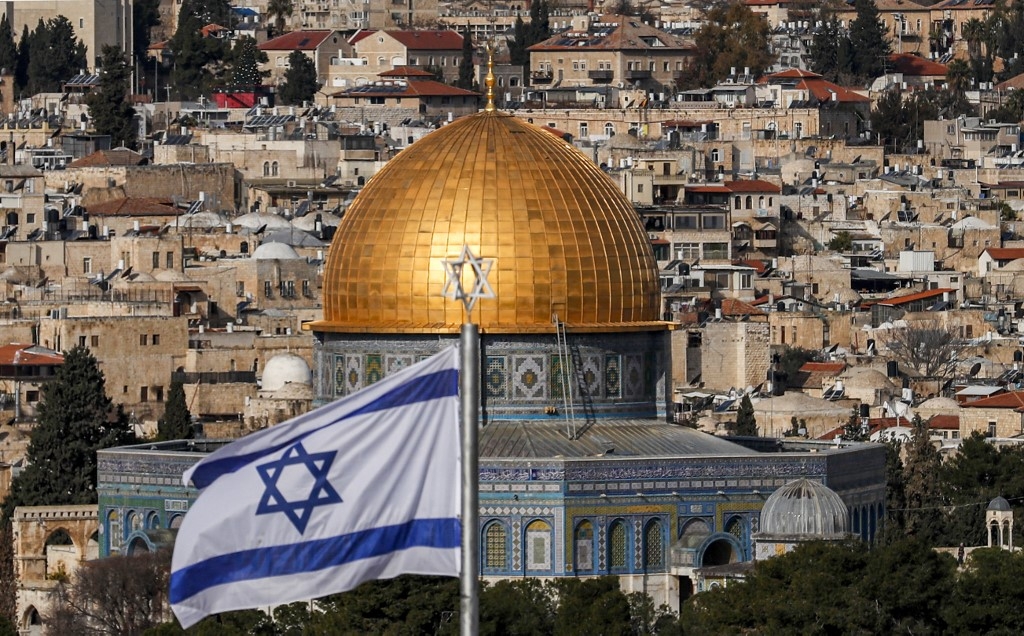
In September 2016, Israeli police rounded up dozens of Palestinian activists in a raid launched after midnight, as we slept. As head of the Balad party at the time, I was at the top of the list.
While the Zionist apartheid regime had routinely persecuted and harassed party activists and leaders, as we were viewed as posing an unprecedented challenge to Israeli structural racism and colonialism, a suppressive campaign of this scale shocked even us.
It was clear that Israel’s goal was to destroy our party via fabricated pretexts, such as illegal fundraising. The Israeli establishment couldn’t find a reasonable justification to indict a legal party represented in the Knesset, and to eliminate the headache it posed to the racist state.
A symbolic story
After being detained for 10 days, I was en route to court in a police van, handcuffed, when the three interrogators accompanying me launched into a political discussion with me about the Palestinian-Israeli conflict. It soon became heated; voices rose as we exchanged different views and beliefs. For a minute, there was silence - and it was then that I recalled one of the worst traumatic incidents throughout the course of my political activism.
New MEE newsletter: Jerusalem Dispatch
Sign up to get the latest insights and analysis on Israel-Palestine, alongside Turkey Unpacked and other MEE newsletters
Thirty-five years earlier, as a young adult, I was grabbed from my chair at a Jerusalem-based Palestinian newspaper office by four Israeli intelligence officers. They put me in their car and beat me brutally until I bled. The assault lasted 15 minutes, the time it took to reach the detention centre. What happened to me there is a long and even darker story.
My answer formed a charge sheet against their state. My family's story is symbolic of the entire Palestinian tragedy
After the momentary silence in the police van, one of the interrogators surprised me by asking: “Awad, why did you enter politics, and how did you become secretary-general of your party?” I waited a few seconds, trying to absorb what sounded like a question driven by curiosity, rather than security interests.
What surprised me further was that they let me tell my father’s story and my own, listening carefully and remaining silent after I finished. I felt it could have been the first time they’d heard the human side of the Palestinian tragedy directly through a personal experience, as they are part of a heavily indoctrinated, settler-colonial society.
My answer formed a charge sheet against their state. My family’s story is symbolic of the entire Palestinian tragedy.
Why I became politicised
As I told them, for me, being political was not a choice. I didn’t study politics in university. I was born into a harsh reality that the Israeli state created, shaping our life trajectories.
When I was a child, I loved fun. As a young teenager, I loved music, football and karate. But at the age of 14, I was summoned for interrogation at a police station - a terrifying experience. It happened because I was mourning the sudden and shocking death of Egyptian President Gamal Abdel Nasser.
Everybody around me - my father, my mother, my grandfather, my neighbours - cried bitterly upon his death. For Palestinians, Nasser was a revolutionary leader who would come to their rescue and bring back their relatives, the refugees expelled by the Israeli state.
Over the years, I learned the story of my family and the entire Palestinian narrative, which is totally ignored in the state-imposed teaching curriculum. History classes focus on the history of Jews and the Zionist narrative. Very few teachers are willing to resist this policy, because they are subjected to intimidation and would risk being fired.
In 1980, just after I graduated with a BA in English language and literature at the age of 23, I was employed as a high-school teacher. Arab schools were in desperate need of English teachers. Just a few weeks later, however, the “Arab department” of the Israeli Ministry of Education ordered the school principal to fire me, allegedly for inciting students against the state.
Speaking the truth
The principal said he had begged them to change their mind, as it was not possible to find another English teacher. But petitions, student strikes and demonstrations only delayed the firing for a few months.
This occurred because I was determined to speak truth to my students. I was not ready to lie to them. The Israeli Ministry of Education forces Arab teachers to lie, to be complicit in our own denationalisation, to submerge our identity, and to hide from students our plight.
The essay My Dungeon Shook by African-American writer James Baldwin was part of the teaching curriculum. It’s an impressive and impactful letter addressed to his nephew on the discrimination and humiliation practised against black Americans, in a country with a terrible history of racism, exploitation and slavery. I found it natural to engage my students in a discussion comparing our lives as Palestinians to the lives of African Americans, despite the vast differences between these cases. That was one of the reasons for my sacking.
“Is that fair?” I asked my interrogators in the prison van. “Do you still think your state is democratic?” But I got no response - only overwhelming silence, with signs of surprise visible on their faces.
Dark family history
I was born to a hard-working farming family in Kawkab, a village in the north of Palestine, today Israel. Since childhood, my father told me stories about its history. My family is among those who survived the expulsion and ethnic cleansing carried out by Zionist gangs during and after the 1948 Nakba.
At the time, the population of the village was around 400, and most remained, thanks to a charismatic and influential figure who conducted successful negotiations with the gangs occupying my village. Yet, about 20 percent of Kawkab’s residents - many of whom are my relatives - fled as soon as they learned that the gangs had gathered village men outside my grandfather’s house.
My father remembers how his brother bled for hours before he died, and he carried the trauma with him for many years
These men were subjected to torture, and everybody expected them to be massacred, as had happened in many other places. Women were screaming and crying; it was terrifying.
At the time, my grandmother had just lost one of her sons who had been engaged in defending the village, and she expected that her three remaining sons and husband would also be massacred by the Zionists; thankfully, they were spared.
My father remembers how his brother bled for hours before he died, and he carried the trauma with him for many years. Before they passed away, my father and mother had waited for decades to see their close relatives who were forced to flee the village in 1948.
During the Israeli invasion of Lebanon in 1982, two of my mother’s cousins were killed while defending the refugee camps, adding to the many traumas my parents had experienced.
'Independence' and catastrophe
On 29 April, the Israeli apartheid state commemorates its so-called independence. Arab elementary schools are forced to celebrate Israel’s “Independence Day” - our Nakba. The Zionist plan is to reengineer, denationalise, and grow a docile Palestinian generation.
Palestinian citizens of Israel have been banned from commemorating their catastrophe. Still, they hold nationwide marches each year to villages that were destroyed in the Nakba. Political scholars have called this development, which came about due to a growing political consciousness, Palestinians’ return to history - a reclaiming of their narrative. Their story, the catastrophe, began in 1948, and even long before - not in 1967.
Removing the events of 1948 and its aftermath from the Israeli curriculum is an attempt to deny Palestinian citizens of Israel access to their history, and more importantly, to prevent us from seeing the ongoing Nakba, with all its ugly facets.
Colonisation of our country is moving along at a greater pace, increasing our suffering and anguish. The global threat of the coronavirus pandemic, which is motivating many to revisit their values and practices, has not ceased the brutality of this anachronistic regime.
Ironically, by behaving in such a way, Israel has voluntarily removed the mask from its face: it is a colonial apartheid regime. This reality should unite Palestinians everywhere, offering an opportunity to wage a united struggle to decolonise our country and install a democratic, egalitarian polity on the ruins of the existing brutal and merciless regime.
The views expressed in this article belong to the author and do not necessarily reflect the editorial policy of Middle East Eye.
This article is available in French on Middle East Eye French edition.
Middle East Eye delivers independent and unrivalled coverage and analysis of the Middle East, North Africa and beyond. To learn more about republishing this content and the associated fees, please fill out this form. More about MEE can be found here.


